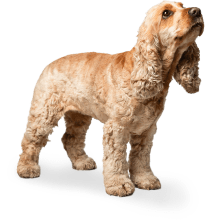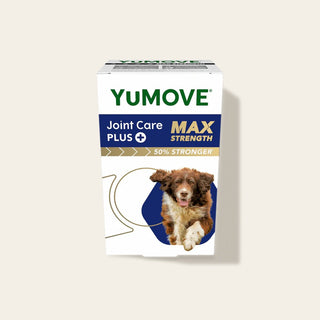

Is Your Dog The Right Weight?
Apparently, during lockdown, us humans have been all over the place when it comes to our weight.
Some of us have taken up new training regimes, thinking, “Right! Finally, I’m going to run that 10k / take up wild swimming / join the boxing class in my local park.”
But apparently more than half of us have found it difficult to manage our weight, due to the lure of the crisp packet, sofa and box set, doing less exercise and drinking more alcohol.
Pets pack on the pounds too
If you’ve found yourself gaining the ‘Quarantine 15’ (an extra 15 pounds), it’s highly likely that your pooch has packed on a few extra pounds as well. After all, if you’re exercising less, your dog may be getting out less too. And when you’re fetching yourself a snack, you may also be sneaking your furry friend an extra dog treat or two while you’re at it.
We’re not here to moralise. It’s been a tough time and we’re all dealing with the stress and changes of the pandemic as best we can. But if your dog isn’t the right weight – whether they’re too heavy or too skinny – it can have health implications.

The risks of your dog being overweight
If your dog’s piled on the pounds recently, they could be at risk of a variety of health concerns that could affect their heart and blood pressure, among other things.
Overweight dogs can develop stiff joints and their quality of life might also be affected if their walks become shorter.
Overweight… what to look out for

- Your can't feel your dog's ribs
- You can't feel the bone at the base of the tail
- You can't see a clearly defined
- Your dog pants heavily after a little exercise
How to help your overweight dog
- Ask your vet’s advice on diet and exercise to suit your pooch. Your vet will be in the best position to advise you on the right diet and the correct amount of exercise for your dog, according to their age, breed and current level of fitness.
- Enjoy plenty of healthy walks with your pup. You’ll both feel better for getting out in the fresh air and staying active.
- Give your dog a good quality, nutritionally-balanced diet. This is likely to be higher in protein, with a moderate amount of fat and lower in carbohydrates.
- Check you’re giving your dog the right portion size. It’s easy to feed your dog too much if you’re judging the amount by eye rather than using scales or a scoop.
- Don’t give your dog food that’s meant for humans. It could be too high in fat, sugar and salt for your pooch.
At the other end of the scale
It’s easy to assume that it’s healthier for a dog to be skinny than overweight. However, being underweight can also be a cause for concern. Perhaps your dog has worms or has dental conditions that are making it difficult for them to eat.
If your dog is persistently underweight, it can make them more susceptible to picking up “what’s going around”, cause muscle mass changes and, ultimately, result in bone density differences.
Is your dog underweight?
- Their ribs are clearly visible.

- You can see their spine and ribs when you look down from above.

- The bones at the base of their tail stick out.
- When you look from the side, there’s a steep rise from their ribs to their hips.
How to help your underweight dog
- Ask your vet to rule out any underlying medical problems. That’s the easiest way to put your mind at rest and ensure that your pooch stays healthy.
- Make sure you’re giving your dog enough to eat, according to their age, breed, size and activity level.
- Don’t give your dog treats and snacks; they need balanced, nutritious food.
- If you decide you need to increase the amount of food you give to your dog, do it carefully and slowly.
- Consider small, frequent feeds containing high-quality protein to tempt your dog to eat.
What do you think?
Do you have any tips on keeping your dog at the right weight? Do please share your ideas with other dog lovers on our Facebook and Instagram pages.




